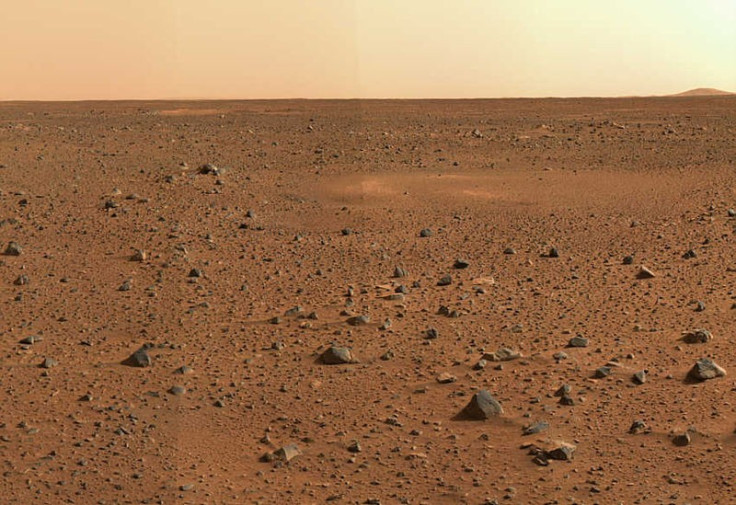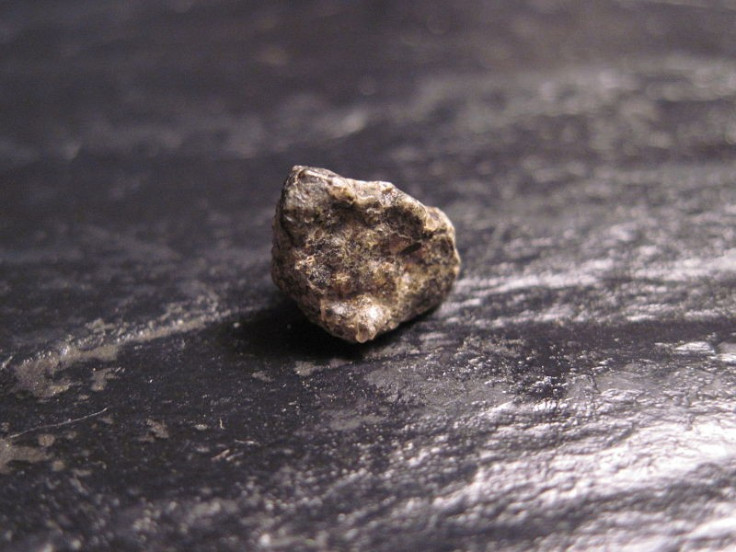We are All Martians: Life 'Came to Earth on a Meteorite from Red Planet'
Element crucial to formation of life, oxidised molybdenum, did not exist on Earth three billion years ago, says Steve Benner

Life on Earth came from a Martian meteorite that crashed on to our planet three billion years ago, a scientist has claimed.
Steven Benner, from the Westheimer Institute for Science and Technology in Florida, will tell geochemists at an annual conference that the element believed to have been needed to start life on Earth was only available on Mars.
"The evidence seems to be building that we are actually all Martians; that life started on Mars and came to Earth on a rock," he said.
Benner will say that an oxidised mineral form of the element molybdenum existed on the surface of Mars and came to Earth on a meteorite. "It's only when molybdenum becomes highly oxidised that it is able to influence how early life formed," he explained.
"This form of molybdenum couldn't have been available on Earth at the time life first began, because three billion years ago the surface of the Earth had very little oxygen, but Mars did. It's yet another piece of evidence which makes it more likely life came to Earth on a Martian meteorite, rather than starting on this planet."
Benner said his theory explains a number of problems with the idea that life on Earth started on Earth.
All living things are made from organic matter but if you add heat or light to them and leave them to themselves, they turn into a tar-like substance: "Certain elements seem able to control the propensity of organic materials to turn into tar, particularly boron and molybdenum, so we believe that minerals containing both were fundamental to life first starting.
"Analysis of a Martian meteorite recently showed that there was boron on Mars; we now believe that the oxidised form of molybdenum was there too."

He also said that Earth was most likely covered in water three billion years ago, meaning life would have struggled to start - boron is only found in very dry places and water is corrosive to ribonucleic acid (RNA), which is thought to be the first genetic molecule to appear on Earth.
At the time, there was water on Mars but it covered a much smaller area than was found on Earth:
"It's lucky that we ended up here nevertheless, as certainly Earth has been the better of the two planets for sustaining life. If our hypothetical Martian ancestors had remained on Mars, there might not have been a story to tell."
Benner's theory is also supported by research by Professor Chandra Wickramasinghe, from the University of Buckingham, who says extra-terrestrials that arrived on a meteorite started life on Earth.
He says fossils found inside a meteorite that landed in Sri Lanka are similar to those found on Earth around 55 million years ago.
"These finds are crushing evidence that human life started outside Earth," he said. "The algae organisms are similar to ones found in Earth fossils, but the rock also has other organisms we have not identified.
"We are all aliens - we share a cosmic ancestry. Each time a new planetary system forms, a few surviving microbes find their way into comets. These then multiply and seed other planets.
"These latest finds are just more evidence to point to the overwhelming fact that life on Earth began on other worlds."
© Copyright IBTimes 2025. All rights reserved.






















